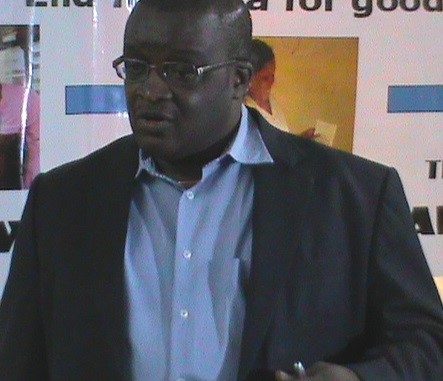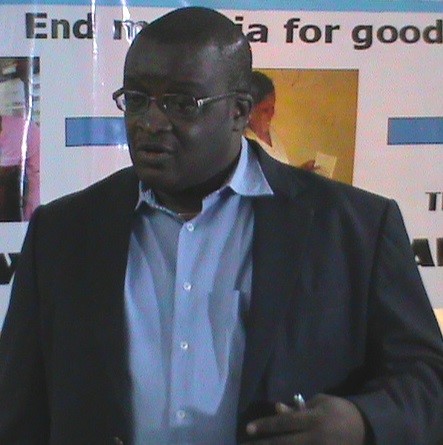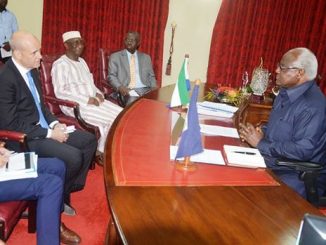
By Jonathan Abass Kamara
The Ministry of Health and Sanitation National Malaria Control Programme in collaboration with the Catholic Relief Services (CRS) will be organizing a two day partners meeting on Tuesday September 6, 2016 at the Hill Valley Hotel Signal Hill Road in Freetown.
Programme Manager, National Malaria Control Programme, Dr.
Samuel Juana Smith
The meeting among other key issues will serve as a platform for all participants to engage and deliberate on ways to effectively coordinate malaria prevention and control interventions nationwide.
Participants are drawn from all the districts across the country with the aim to strengthen communication, coordination, and synergy and complete efforts between partners and reduce duplication of activities in malaria prevention and control in the country.
The compilation of a comprehensive list of malaria implementing partners, map out intervention areas by partners, create synergies and complementarities between implementing partners and identify coverage and intervention gaps for malaria in Sierra Leone will also form part of the meeting.
The Government of Sierra Leone fully acknowledges efforts made by all stakeholders Faith-based, community based, Non-governmental and civil society organizations including donor partners acting in an integrated fashion in recognizing the malaria disease burden in the country and the strategic planning of evidence based and result oriented interventions that would foster equitable distribution of our resources in the control and prevention of malaria and vector borne diseases and the associated risk factors.
The Sierra Leone Health Sector has identified its priorities under the primary health care services. The Ministry of Health and Sanitation has identified several health priorities that embrace broadly three areas: diseases that affect children, those that affect women during pregnancy and child birth, and diseases of adults. Priority areas of conditions and areas that affect children include malaria, worm infection, measles, neonatal tetanus, diarrheal diseases, acute respiratory infection, pneumonia, severe malnutrition, whooping cough and tuberculosis.
In Sierra Leone, malaria remains one of the prime causes of death among children and the biggest cause for medical consultation and hospitalization.
Malaria continues to threaten almost 40 percent of the world population. Every year around 500 million people suffer from malaria and over one million die from this diseases.
According to the Sierra Leone Malaria Indicator Survey 2013, Sierra Leone over the past couple of years achieved a remarkable success in malaria control initiatives with prevalence rate dropping from 68 percent in 1987 to 43 percent in 2013.
In recognition of the progress made in malaria control over the past years, Sierra Leone was among the 12 countries to receive the 2015 African Leaders Malaria Alliance Award for Excellence.




